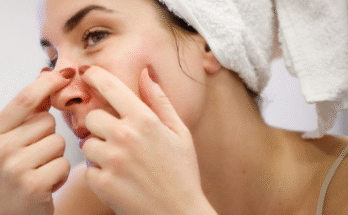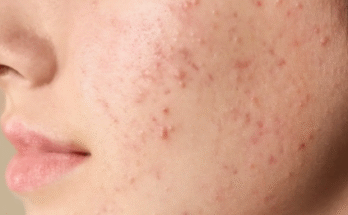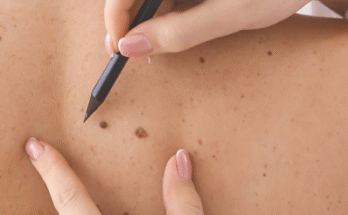Acne is one of the most common skin concerns in the world, affecting people of all ages. While it is often associated with adolescence, many adults also struggle with breakouts well into their twenties, thirties, and beyond. Fortunately, dermatologists agree that with the right skincare habits, balanced lifestyle choices, and a little patience, it is possible to reduce the frequency and severity of acne. The goal is not to aim for perfection, but to help your skin feel calmer, healthier, and more confident in its natural state.
Understanding Acne
Before jumping into prevention tips, it helps to understand what acne really is. Dermatologists describe acne as a multifactorial condition—meaning that several causes can work together. Excess oil production, clogged pores, bacteria, inflammation, and hormonal changes all play a part. The result can be blackheads, whiteheads, pimples, or cysts, depending on how deep the inflammation goes.
While genetics and hormones can’t be fully controlled, dermatologists emphasize that healthy skin habits can make a noticeable difference. Small changes in your daily routine often add up to visible improvements over time.
Gentle Cleansing Makes a Big Difference
One of the simplest yet most effective acne prevention steps is maintaining a consistent cleansing routine. Dermatologists recommend washing your face twice a day, especially after sweating or wearing sunscreen and makeup. However, cleansing too frequently or using harsh scrubs can irritate the skin and worsen breakouts.
Choose a mild, non-comedogenic cleanser—this means it won’t clog pores. Lukewarm water works best, as very hot or very cold water can stress the skin barrier. Gently pat your face dry with a clean towel instead of rubbing it. Over time, this gentler approach helps reduce irritation and keeps your skin balanced.
Keep Hands and Hair Away From Your Face
Touching your face is a habit most people don’t even notice. Unfortunately, it can transfer bacteria, oils, and dirt to your skin, leading to clogged pores. Dermatologists frequently remind their patients that breaking this habit can improve skin clarity.
Similarly, if your hair tends to be oily or if you use styling products, try to keep it away from your face. Shampoo regularly, especially after exercise, and consider tying your hair back if it’s long. Simple adjustments like these can reduce the risk of acne forming along your forehead, temples, or jawline.
Moisturizing Is Still Important
It’s a common misconception that oily or acne-prone skin doesn’t need moisturizer. In fact, skipping moisturizer can backfire. When the skin becomes too dry, it can produce even more oil to compensate, leading to clogged pores and breakouts.
Dermatologists suggest using a lightweight, oil-free, and non-comedogenic moisturizer. Look for ingredients like hyaluronic acid or glycerin, which hydrate without greasiness. Moisturizing consistently helps maintain the skin’s protective barrier, making it less likely to react with inflammation or sensitivity.
Choose Acne-Friendly Products Wisely
Today’s skincare market offers countless products promising clear skin, but not all are suitable for everyone. Dermatologists recommend reading ingredient lists carefully and avoiding products with heavy oils or strong fragrances. Ingredients like salicylic acid, benzoyl peroxide, and niacinamide are dermatologist-approved for acne-prone skin, but they should be introduced gradually to avoid irritation.
Makeup and sunscreen are also common culprits in clogging pores. Opt for formulas labeled “non-comedogenic” or “oil-free.” Removing makeup thoroughly before bed is equally important—sleeping with makeup on is one of the easiest ways to trigger breakouts overnight.
Avoid Over-Exfoliating
Exfoliation helps remove dead skin cells, but too much of it can harm the skin’s natural barrier. Dermatologists generally recommend exfoliating only one to three times a week, depending on your skin’s tolerance. Overdoing it can lead to redness, dryness, and even more breakouts.
Gentle chemical exfoliants containing alpha hydroxy acids (AHAs) or beta hydroxy acids (BHAs) are often preferred over rough scrubs. They work by dissolving dead cells without creating microtears in the skin. The result is smoother, more radiant skin over time.
Pay Attention to Lifestyle Factors
While skincare routines matter, dermatologists emphasize that overall lifestyle habits also influence acne. A diet rich in vegetables, fruits, whole grains, and lean proteins supports skin health from the inside out. Limiting foods that cause sudden spikes in blood sugar—such as sugary snacks or drinks—may also help some people notice fewer breakouts.
Adequate sleep is another cornerstone of healthy skin. When you’re well-rested, your body has more energy to repair and renew itself. Stress management also plays a role, as high stress levels can increase certain hormones that trigger oil production. Incorporating relaxation techniques such as exercise, yoga, or mindfulness can benefit both your skin and overall well-being.
Don’t Pick or Squeeze Pimples
Almost everyone has felt the temptation to pop a pimple, but dermatologists strongly advise against it. Picking can push bacteria deeper into the skin, leading to more inflammation and possible scarring. Instead, treat blemishes with a gentle acne spot treatment or a hydrocolloid patch that protects the area while helping it heal.
If you have recurring or painful breakouts, consider consulting a dermatologist for professional advice. They can prescribe treatments that target acne safely and effectively, preventing long-term damage.
Be Patient and Consistent
One of the hardest parts of acne prevention is patience. Dermatologists often remind their patients that skin takes time to respond to changes. It can take several weeks—or even a few months—before you see noticeable improvements. The key is to stay consistent with your skincare routine and not give up too soon.
Trying too many new products at once can confuse your skin and make it difficult to identify what works. A steady routine with simple, proven products usually leads to better long-term results.
When to See a Dermatologist
If acne becomes persistent, painful, or leaves marks behind, it’s time to seek professional help. Dermatologists can offer a variety of treatments, including topical or oral medications, light therapies, or chemical peels tailored to your skin type. They can also rule out other conditions that might resemble acne.
The advantage of professional care is that it provides personalized guidance. What works for one person may not work for another, and a dermatologist can help you find a plan that fits your unique needs safely.
Embracing Healthy Skin Habits
Acne prevention is not about achieving flawless skin—it’s about helping your skin function at its best. By following dermatologist-approved habits such as gentle cleansing, consistent moisturizing, smart product choices, and mindful lifestyle practices, you can support a clearer and more balanced complexion.
Everyone’s skin journey is different, and occasional breakouts are perfectly normal. What matters most is treating your skin with care and patience. Over time, these small daily actions can make a lasting difference, helping your skin look and feel its healthiest.


